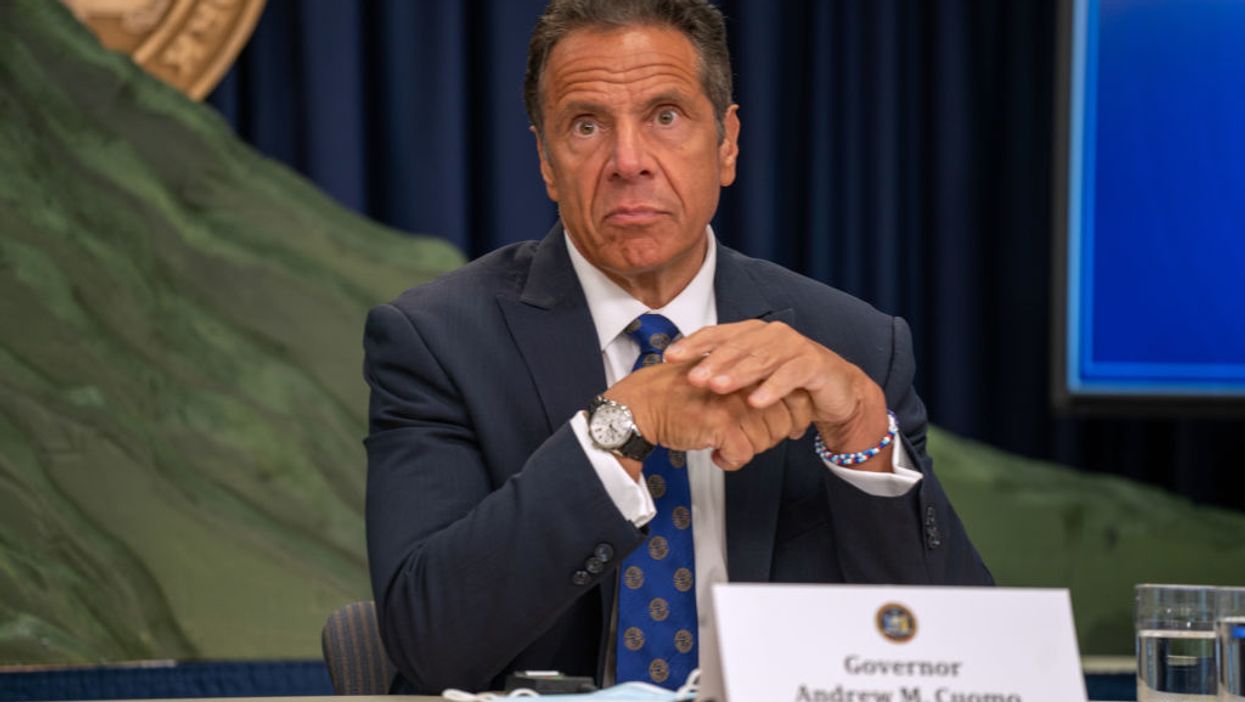All New Yorkers will be able to vote by mail in the fall if they want. Gov. Andrew Cuomo signed legislation Thursday permitting voters to point to the coronavirus pandemic as a reason for seeking an absentee ballot.
The fourth most populous state normally requires people to choose from a narrow set of impediments to getting to a polling place, such as being sick or out of town. It now joins nine states that have simply suspended those rules for the year — or, as in New York's case, expanded the definition of "illness" to cover concern about voting in person due to Covid-19.
That leaves only six states, all of them Republican bulwarks, that are still keeping their tight excuse rules for the presidential election: Texas, Indiana, Louisiana, Mississippi, South Carolina and Tennessee.
Like a majority of states, New York has made accommodations in order to promote robust electoral democracy this fall — no matter the status of the public health crisis. Six have switched to a mostly vote-by-mail election, most notably, while a handful of others have decided to send ballot applications to all active voters.
The new law, which Cuomo's Democratic allies in control of the Legislature passed last month, makes a change similar to what was done for the June primary — although that was accomplished by executive order.
And, unlike the primary, when all voters were mailed a request form for an absentee ballot, they will have to contact the Board of Elections in order to get a ballot this time. This may tamp down the surge of mail-in votes across the state this summer, which led to tabulation delays and disputes that prevented results in some close races from being announced for several weeks — a fact President Trump has pointed to as evidence mail voting leads to fraud, although no malfeasance in the Empire State has been alleged.
Lawmakers in Albany have already voted once to amend the state Constitution so New York can join 34 other states in allowing no-excuse absentee voting in every election. But that won't happen before 2022, and only if the Legislature reaffirms its initial vote next year.
While Trump has claimed he's in the hunt for the 29 electoral votes of his former home state, he took just 36 percent of the vote four years ago — and the last Republican to carry it was Ronald Reagan in 1984. Races for four congressional seats are competitive, however.




















